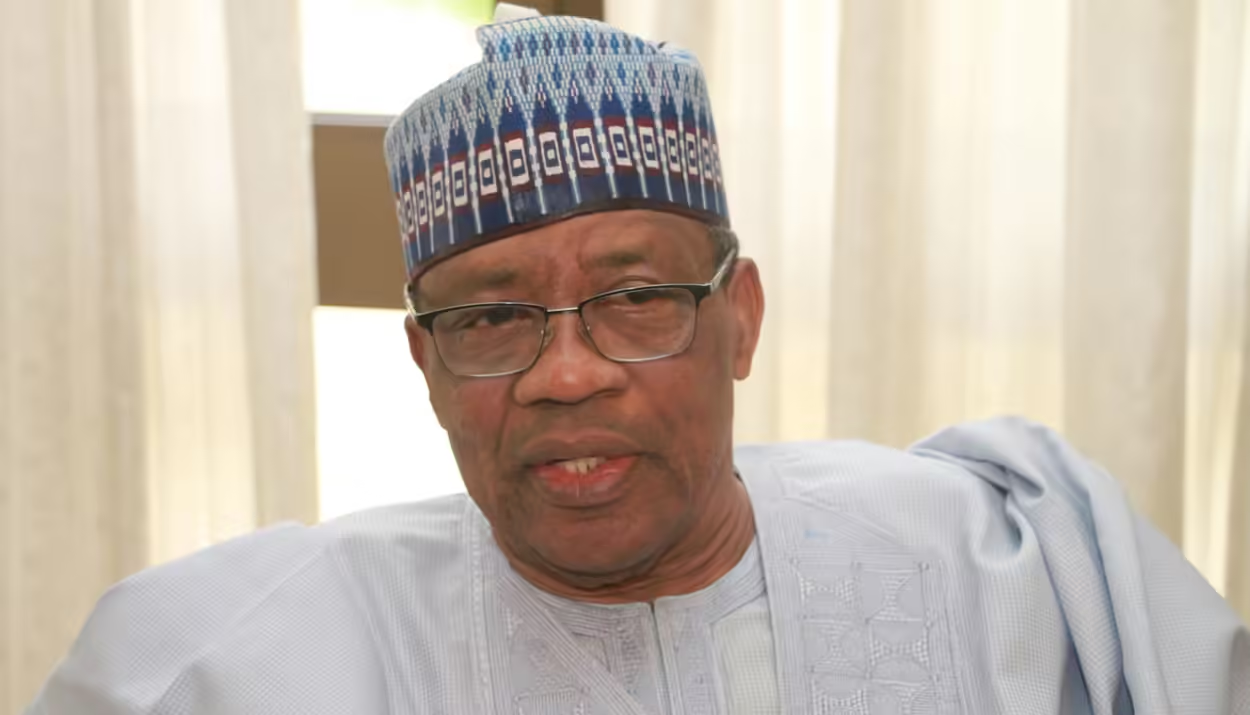A few people in Nigeria’s modern history command as much intrigue as General Ibrahim Babangida. A man of immense power and wealth, Babangida ruled the country as military Head of State from 1985 to 1993, leaving behind a legacy of economic reforms, political controversies, and an empire of investments that continues to fuel speculation decades later.
Often called “IBB” or the “Evil Genius” by critics, Babangida is a master strategist—both on the battlefield and in business. While his economic policies shaped Nigeria’s economy, his fortune, rumored to be between $5 billion and $8.5 billion, remains shrouded in secrecy.
Contents
A soldier’s rise to power
Born on August 17, 1941, in Minna, Niger State, Babangida grew up in a modest setting. He joined the Nigerian Army in 1962, training at elite military institutions in Nigeria, India, the United Kingdom, and the United States. He quickly gained a reputation for bravery, a quality that defined his military career.
During the failed coup attempt of 1976, Babangida reportedly confronted the mutineers at a Lagos radio station unarmed, disarming them and helping to restore order. His military acumen earned him the role of Chief of Army Staff in 1984 under the administration of Major General Muhammadu Buhari. Just a year later, Babangida staged a bloodless coup, overthrowing Buhari and assuming power as Nigeria’s new leader.
His administration was marked by sweeping economic policies, including introducing the Structural Adjustment Program (SAP), which aimed to stabilize the economy through privatization, foreign investment, and currency devaluation. Though the SAP had some success in boosting exports and deregulating key industries, it also led to widespread hardship due to inflation and job losses.
The business of power: How Ibrahim Babangida built his fortune
Babangida’s time in office gave him access to vast state resources, and reports suggest that he used this influence to secure substantial wealth. While Nigeria has no official record of his assets, multiple reports place his fortune among the largest in Africa.
One of the key sources of Babangida’s wealth is believed to be Nigeria’s oil sector. During his tenure, billions of dollars in oil revenues were controlled with little oversight. Allegations of misappropriation surfaced, most notably concerning the $12.4 billion in Gulf War windfall funds that reportedly vanished during his administration. While no formal charges have ever been brought against him, suspicions persist that these funds played a role in his financial empire.
Beyond oil, Babangida’s business interests span multiple industries, including banking, telecommunications, real estate, and agriculture. He is rumored to hold significant shares in some of Nigeria’s largest financial institutions, including First Bank and United Bank for Africa (UBA). These investments allow him to remain a powerful, albeit behind-the-scenes, figure in Nigeria’s economy.
The mansion in Minna and a lifestyle of luxury
Despite keeping a relatively low profile in his later years, Babangida’s opulent lifestyle is challenging to ignore. His private residence in Minna, Niger State, is an architectural marvel, reportedly costing over $3 million. The sprawling estate features state-of-the-art security, expansive gardens, and luxurious interiors that reflect his status.
His car collection is equally impressive, featuring high-end vehicles such as a Rolls-Royce and a Mercedes-Benz 600 Pullman, among others.
A polarizing legacy: Philanthropy and political influence
Despite the controversies surrounding his tenure, Babangida remains influential in Nigeria’s political and business circles. He is frequently consulted by politicians seeking endorsements, and his financial power ensures that he remains a key player behind the scenes.
Babangida has also engaged in philanthropy in his later years, particularly in education and healthcare. The Ibrahim Babangida University in Niger State stands as one of his contributions to Nigeria’s academic sector.
However, for many Nigerians, Babangida’s legacy remains tainted by the annulment of the 1993 presidential election—widely considered the freest and fairest in the country’s history. The decision to nullify businessman Moshood Abiola’s victory led to political unrest and ultimately paved the way for the dictatorship of General Sani Abacha.
A billionaire in retirement
Now in his 80s, Babangida lives a quieter life but remains one of Nigeria’s wealthiest individuals. His financial empire, built on decades of strategic positioning, thrives. His ability to amass and maintain such wealth speaks to his skill as a tactician, whether in governance or business.
For some, Babangida is a genius who understood power and wealth better than any of his contemporaries. For others, he symbolizes the corruption and opacity that have long plagued Nigeria. His impact remains undeniable—on Nigeria’s economy, politics, and the elite business class that continues to shape the country’s future.
In a nation where wealth and power often go hand in hand, Ibrahim Babangida’s story continues to captivate, even decades after his exit from public office.






